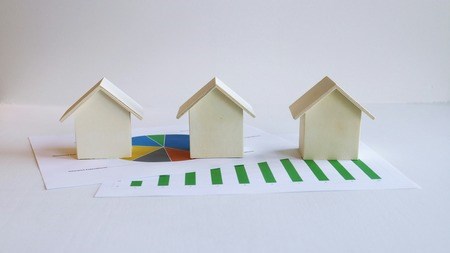The South African property market is set to remain positive in the wake of BREXIT and the impact is likely to be far less than perhaps thought of.
The South African property market is set to remain positive in the wake of BREXIT and the impact is likely to be far less than perhaps thought of, certainly less impactful compared to the UK, says Stuart Manning, CEO of the Seeff property group. It may even further enhance South Africa’s already attractive property proposition for investors.
Britain’s exit from EU
This follows the shock result that Britain is to exit the European Union following the Referendum held on Thursday, the 23rd June. The announcement sent the rand into freefall against the US Dollar and it dropped in value by just short of 9% to a level even lower that the ‘Nenegate’ incident of early December. By midday, however, the ‘panic’ had subsided and the rand recovered.
What this shows, is that there tends to be an initial ‘panic’ before the markets settle down again
South African Market
South Africa already faces currency volatility, especially as it is linked to the emerging markets and what tends to happen now, is that emerging markets have lost a bit of its shine for investors who, as we saw on Friday, would look to shift their funds to safer havens. Part of the drop in demand and value could also be attributed to some currency trading and profit taking.
The impact of BREXIT
The impact will of course be felt in the UK and in Europe, but insofar as South Africa is concerned, Manning points out that leading local economists expect the effect of BREXIT to be far less impactful and no more than the challenges already faced as an emerging economy with a currency under pressure.
We may well see a fall-out from BREXIT in the form of a further weakening of the rand and with that, rising import costs, higher inflation and a resultant interest rate hike as the Reserve Bank would look to step in to stem the tide.
As we are already in an upwards inflationary and interest rate hiking cycle, this could add further pressure. Having said this, the recent CPI data was better than expected and it looks as if we will get another interest rate breather when the MPC meets in July, but, Manning cautions that this will depend on how the currency behaves in the fall-out from the BREXIT decision.
Economy to remain stagnant
The expectation is that BREXIT will bring about no greater economic risk than what we are already dealing with such as the threat of poor economic growth, rising inflation, rising interest rates, a weaker rand, shrinking household disposable income and rising cost of credit and home ownership.
Much of the economic challenges that we face, are beyond our control and relate to the structure of the SA economy, drop in demand for commodities and an overall slowing of the emerging market economies and international investment shifting out of emerging markets, says Manning.
A vital effect on the whole though is what people think as much of the economy and property market is sentiment driven, And, he adds, that is something that the economy is currently grappling with, both consumer and business confidence are at historically low levels right now.
The reality of the property market
Having said that, what we have seen over the past few months, is that people are reading more ‘gloom and doom’ than the reality. Market commentators who have predicted serious ‘gloom and doom’ for the property market have had to back-track a little as none of the ‘disasters’ predicted have befallen the market as yet.
In fact, we have seen an admission that the market is still well-balanced as South Africans just take the challenges in their stride and continue about their daily lives, working and buying and selling property as they need to or want to.
Save for obvious exceptions such as the mining towns where a drop in this economic sector has directly affected jobs and economic growth and with that the demand for property, the market continues to turn quite nicely and continues to grow, says Manning.
We would most certainly caution buyers and sellers against paying too much attention to ‘naysayers’. The flipside of BREXIT could well be that a weaker rand brings more tourists, investment and property buyers.
The South African property market is still on solid ground and real estate continues to be viewed as a sound investment even, says Manning, during relatively poor economic growth as we have seen over the last few years.
Growth rate
While the economy managed only about a 1%-2% growth rate in recent years, property values in many areas are now 30%-50% higher compared to five years ago.
In high profile areas such as Cape Town’s Atlantic Seaboard and City Bowl for example, property values have in some instances practically doubled since 2010.
Where we once thought that a property selling for R20 million was headline news, we are now seeing properties selling for up to R100 million to as much as almost R300 million on the Atlantic Seaboard.
Our view is that we can only control what we can and South Africans are likely to take this in their stride and continue to live and work, move around and buy and sell property as they need to or want to.





